This article may contain affiliate links. Please see our affiliate disclaimer in the footer menu for more information. Thank you for your support!
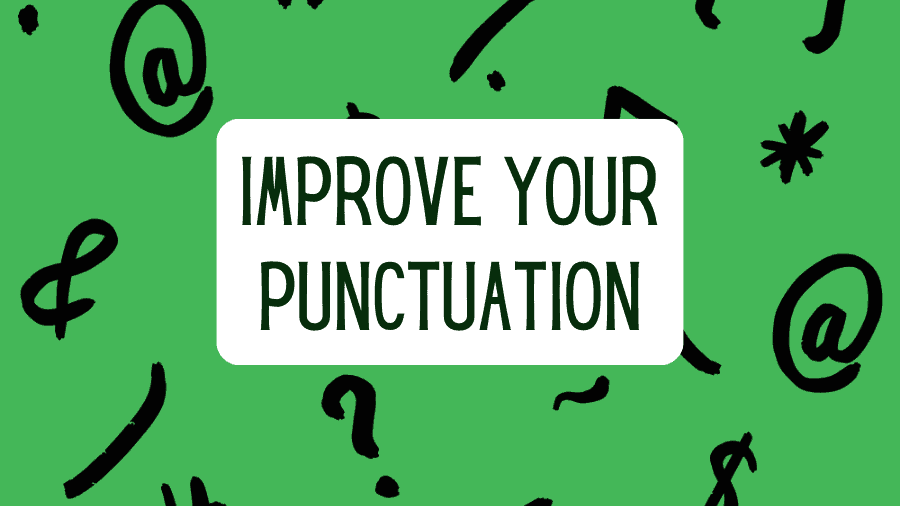
If you’re on a mission to improve your punctuation, kudos! Proper punctuation is essential for effective communication because it makes writing clear and easy to read.
In her book Painless Grammar, Rebecca Elliott compares punctuation marks to road signs—what a fitting comparison!
Proofreaders, editors, writers, students, teachers, entrepreneurs, and ESL learners are a few examples of people who would benefit from better punctuation know-how.
Regardless of your punctuation proficiency, you’ll find pointers in this post to propel your punctuation prowess to the next level.
Let’s get into these stellar strategies so you can learn to punctuate like a pro!
1) Learn punctuation rules on reputable websites.
Many well-respected websites provide content pertaining to punctuation.
One of the best sites I’ve found is The Punctuation Guide.
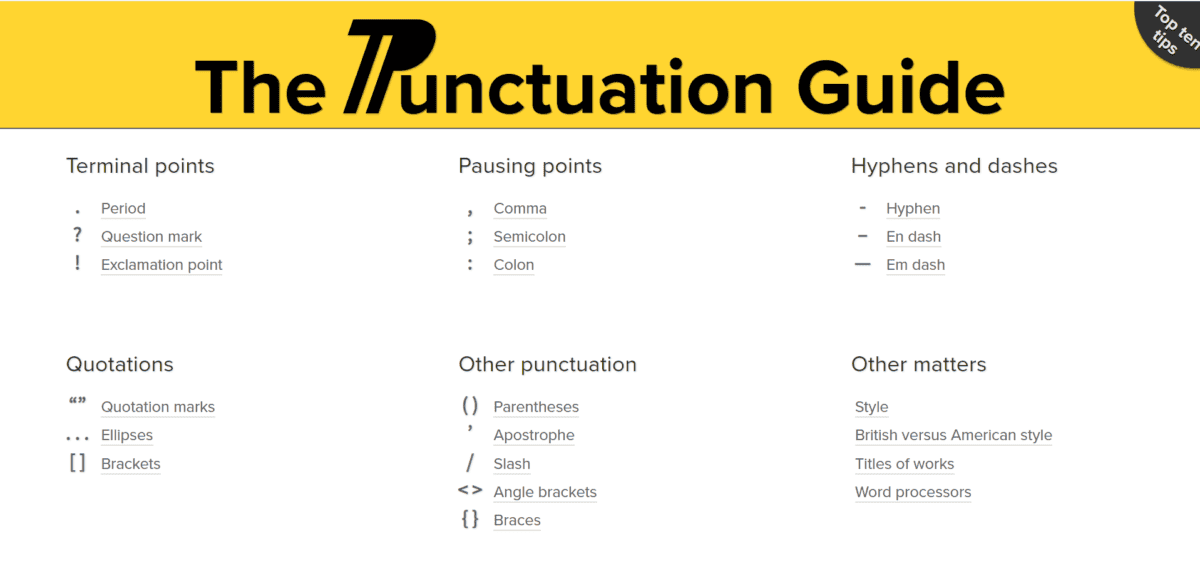
This überhelpful and easy-to-navigate website has been around for quite a while, and it’s a gem!
Grammar Book.com and Grammar Monster are also wonderful websites for learning punctuation basics.
Below you can see how to navigate to the punctuation content from each website’s home page.
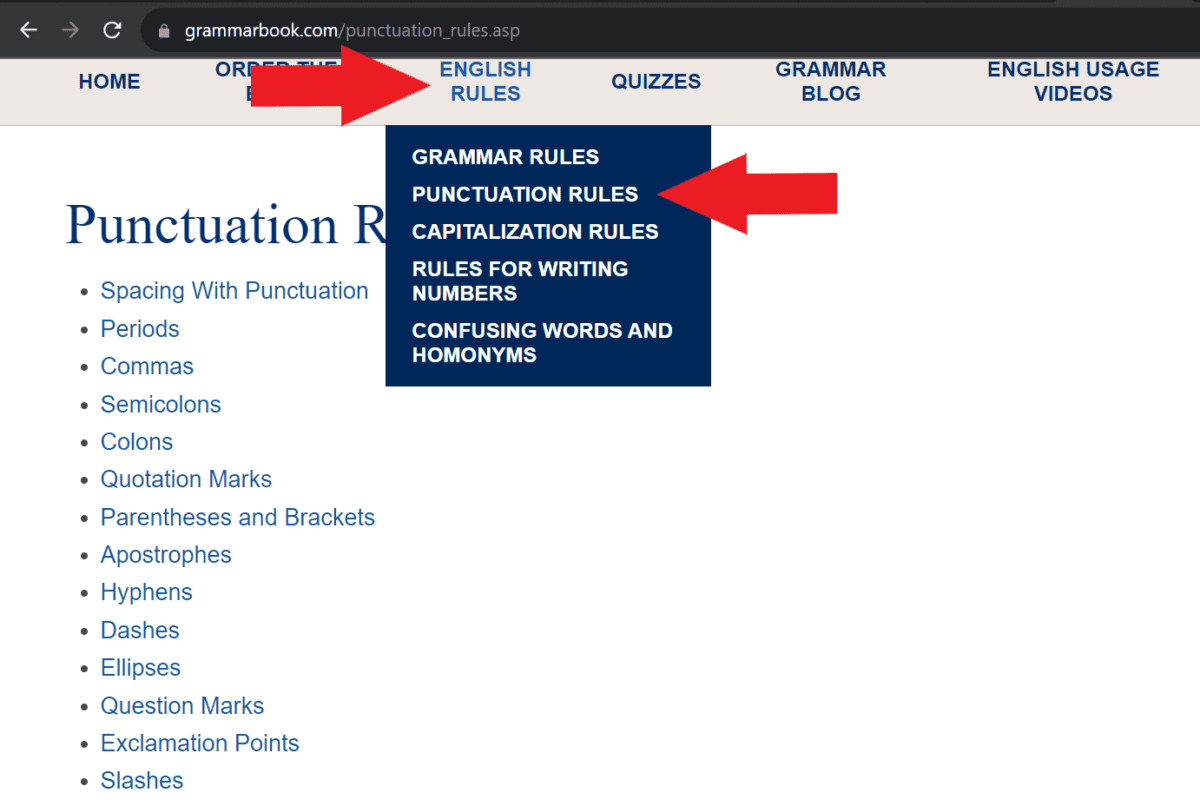

All three of these sites are ideal for learning punctuation rules for the first time or brushing up on the basics!
2) Practice your punctuation skills with fun quizzes.
One of the most entertaining ways to practice punctuation is by taking tests and quizzes to discover what you’ve mastered and what you need more help with.
Two of my favorite sites for tests are the last two sites I mentioned.
Here’s how to get to the quizzes from these sites’ home pages. I hope you enjoy them!


If you’re already adept at punctuating prose, you may want to check out my article containing many proofreading tests.
You’ll be proofreading for more than punctuation (e.g., grammar, spelling), but it’s still suitable practice for those needing more of a challenge.
3) Refer to the dictionary for guidance.
If you thought the dictionary was only useful for knowing the meaning, spelling, and pronunciation of words, I’ve got news for you.
You can use the dictionary to see whether a word needs to be hyphenated or requires periods (in the case of acronyms). 😊
While writing this article, I checked the Merriam-Webster.com Dictionary to see whether the right word was re-read or reread. The correct term is reread: no hyphen needed!
And what about the acronym NASA? Or is it N.A.S.A.?
It’s the first one, thank goodness! Who wants to type four extra periods?
4) Improve your punctuation by reading good writing.
Reading good writing allows you to see examples of correctly punctuated sentences.
Where do you find skillful writing that matches your interests and is as punctuation-perfect as possible?
I’m guessing you probably don’t want to read scholarly journal articles, textbooks, or other sources of very correct but not very exciting writing. If I’m wrong, please read those.
If I’m right, I’d recommend books (minus textbooks) as your go-to source for well-punctuated literature.
Books from well-known publishers are a solid option since they’ve undergone multiple rounds of editing and proofreading.
If you’re a beginner or English isn’t your first language, reading children’s books is a fantastic place to start.
Try to set aside a block of time (maybe 15 minutes), and make it a point to pay attention to punctuation.
When I’ve used this strategy, I’ve drifted from observing punctuation to getting lost in what I was reading—so just a heads-up.
You may want to set a timer for five-minute intervals to ensure you stay on task.
5) Ask for feedback from various sources.
To make sure you’re putting the right marks in the right places, you may want to ask for feedback from a punctuation-savvy peer, friend, or family member.
But what do you do if you’re the most—mirror, mirror, on the wall—punctuation savvy of them all?
One option is to look for writing groups on LinkedIn and Facebook.
Grammar checkers like Grammarly are another option, but they’re not foolproof.
Of course, your best bet for getting feedback on sentence symbols (can I call them that?) is to hire a professional proofreader.
A properly trained proofreader will bring a plethora of punctuation pitfalls to your awareness. I promise!
6) Take Grammar Lion’s Comma Mini Course (it’s free).
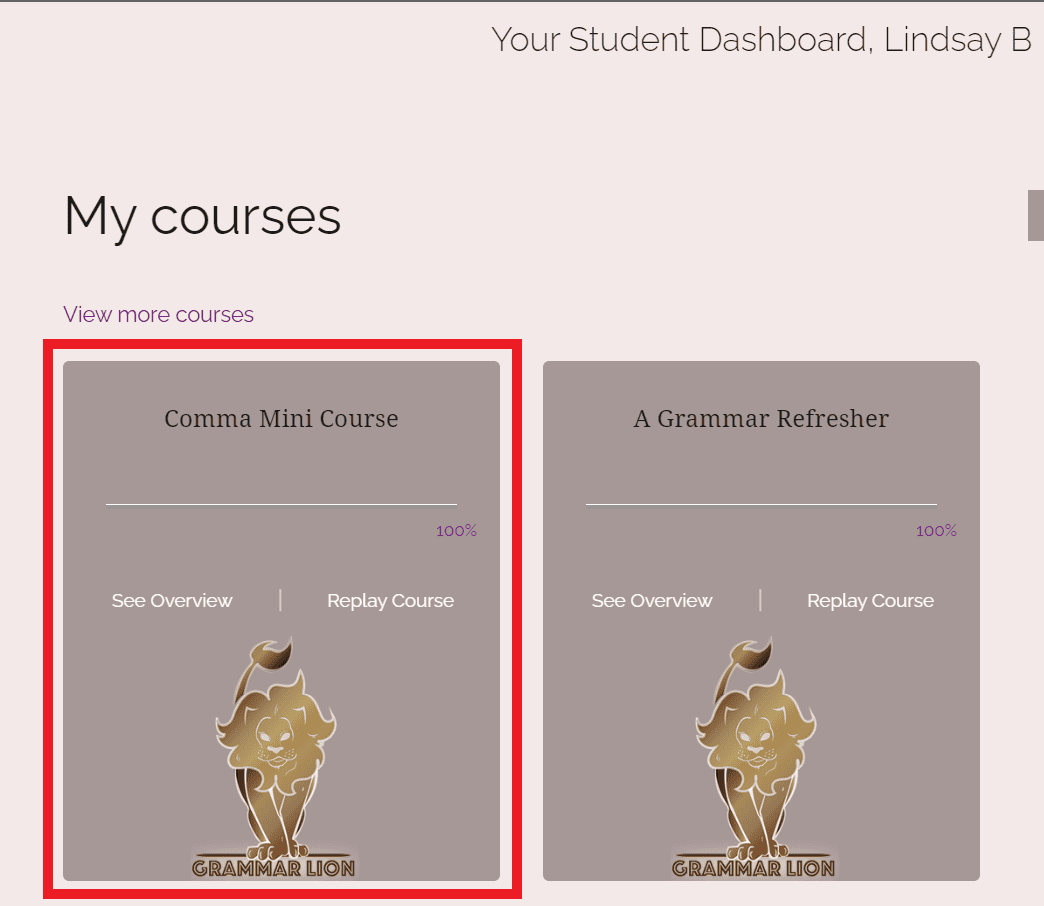
The comma is notoriously hard to master.
So if you want a fun and fast way to get familiar with commas, Grammar Lion’s free comma course is the way to go. I enjoyed taking it.
Ellen Feld, the course instructor, has a master’s degree in writing from Johns Hopkins University. You can ask her questions throughout the course via the discussion forum or email.
You’ll learn 14 comma rules and discover my favorite punctuation acronym: FANBOYS. At the end of the class, you’ll take a short quiz.
7) Visit the English Language & Usage Stack Exchange.
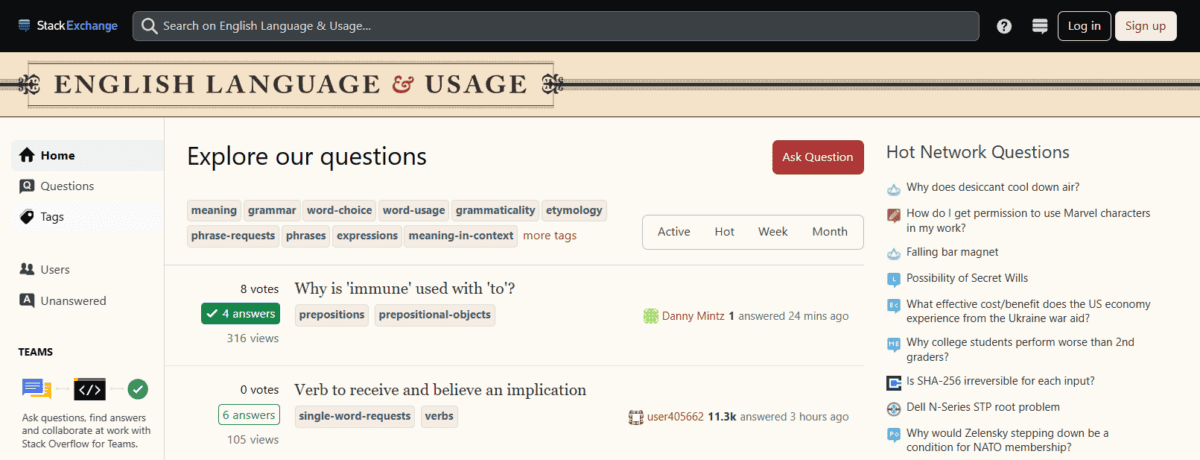
Do you have a burning punctuation question but don’t know where to turn for help? The English Language & Usage Stack Exchange is a perfect place to get insight when pondering a particular punctuation point.
The platform tends to attract people who are knowledgeable about English punctuation and grammar.
Signing up is simple and free. Then, you can ask questions and search for punctuation-related questions that people have already posed.
You can also reinforce your learning by answering questions for others.
Reddit and Quora are other platforms where you can ask and answer questions.
8) Use a workbook to practice your skills.
My favorite workbook for punctuation practice is The Blue Book of Grammar and Punctuation by Jane Straus. Straus started the popular GrammarBook.com website I mentioned earlier.
I think the quizzes throughout the book are what make it worth buying.
Overlap exists between the quizzes in the book and those on the website, but the book quizzes are more comprehensive.
Furthermore, spending time away from a screen to practice punctuation is always a plus.
And if you happen to be a proofreader and don’t yet have the book The Best Punctuation Book, Period by June Casagrande, you’ve got to get it! 😊
In my article “5 Best Reference Books for Proofreaders,” I discuss this book and Straus’s book more fully.
9) Make proper punctuation a habit (even when texting!).
If you want to get better at punctuating sentences, you need to practice consistently. Yep, even when you’re texting.
Believe it or not, I practice this rule. Well, with one exception. I have an affinity for using multiple punctuation marks to end a sentence. Sh, don’t tell anyone!!! 😉
Consistent practice leads to consistent progress.
We don’t want to undo our newly improved habits by unintentionally unlearning them as we send text messages without regard for the appropriate use of sentence symbols.
10) Read the University of Bristol’s Punctuation Marks Guide
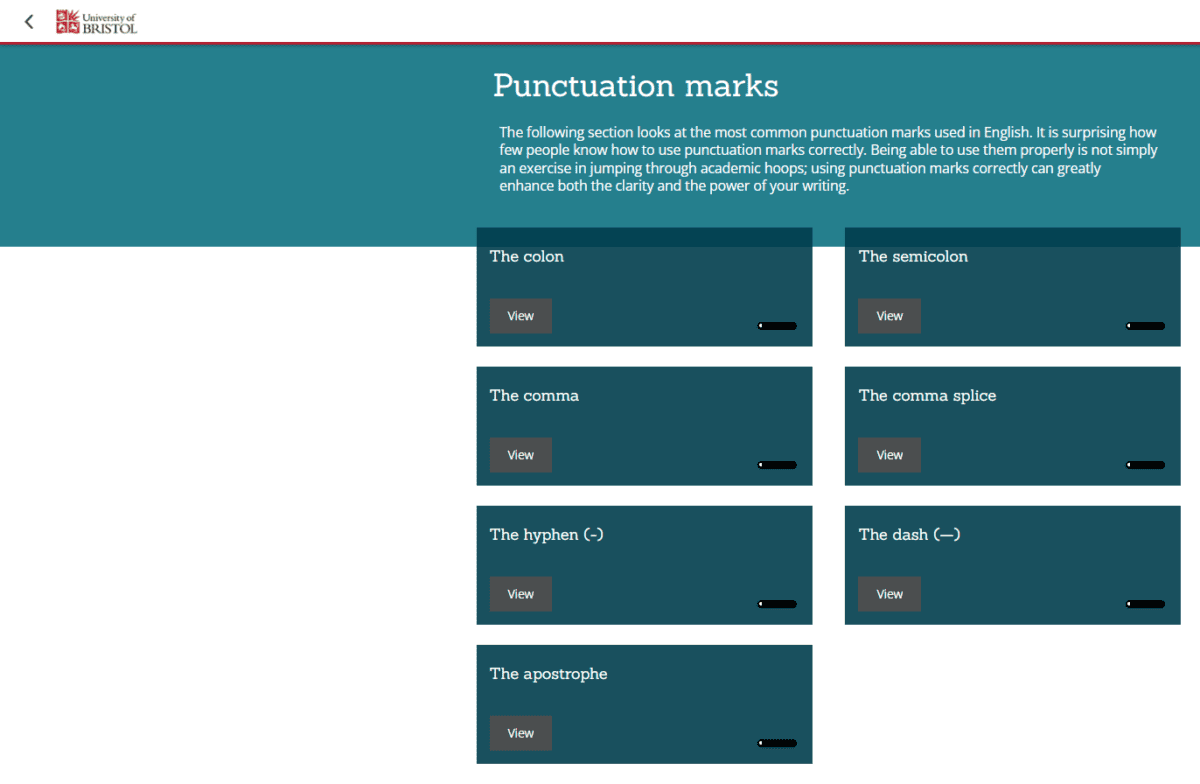
The University of Bristol has a handy section about punctuation that I find quite helpful.
I like the way it’s formatted for ease of reading.
You’ll find a few questions to test your comprehension at the end of the explanation for how to use each punctuation mark. And who doesn’t love a good quiz?
Although the section doesn’t address all punctuation marks, it reviews the ones people tend to struggle with the most—commas, hyphens, and apostrophes.
11) Check out videos on YouTube.
If you’re an auditory learner, you may want to improve your punctuation by checking out relevant videos on YouTube.
I especially recommend the videos produced by Khan Academy. Here are a few of their videos you may find valuable:
- “Commas in Dialogue”
- “Dashes”
- “Semicolons and Complex Lists”
You can find plenty of other relevant videos—just search for the punctuation mark you need help with!
12) Pay close attention to end marks.
We can end a sentence with a period, a question mark, or an exclamation point. And in formal writing, we can only choose one of these marks (almost always a period or question mark) to wrap up a sentence.
Although we’ve all seen text messages concluding with ?! or !? (I’m looking at my guilty self), we typically don’t witness more than one punctuation mark at the end of a sentence in formal writing.
But my main point isn’t about formal vs. informal writing; it’s the fact that end punctuation is surprisingly easy to get wrong.
You’d be amazed how often I see bulleted or numbered lists with missing end punctuation.
But the most frequent end-punctuation pitfall I see is ending a direct question with a period instead of a question mark. Have you noticed this puzzling punctuation pattern.
If you never have, reread that last sentence. 😉
13) Proofread your writing for correct punctuation.
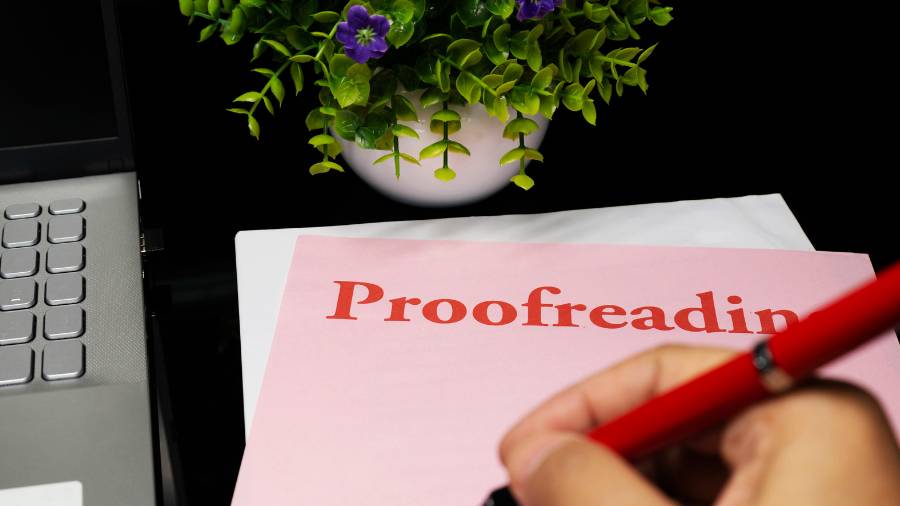
You already have some punctuation skills. However, if you don’t proofread your writing, it appears as though you lack these skills.
Going back to my previous point, we occasionally use periods when we mean to use question marks. It’s not that we don’t know how to use question marks—it’s that we forget to use them.
That’s why merely proofreading your writing can improve your punctuation.
I authored an article about what to look out for while proofreading your work.
In this article, I let numerous punctuation marks briefly speak for themselves by reminding us how they like to be used.
I let the following punctuation marks say their piece:
- periods
- question marks
- exclamation points
- commas
- semicolons
- colons
- parentheses
- quotation marks
- apostrophes
- hyphens
- em dashes
- en dashes
Yes, I’ve personified punctuation to make it a bit more entertaining. 😊
14) Practice good punctuation by writing on paper.
Since punctuation is a part of writing, what better way to practice punctuation than through writing?
Although many individuals prefer typing notes to writing them, research shows we remember handwritten notes better (source).
You can have a notebook dedicated to punctuation.
After learning a rule about a specific symbol, practice writing sentences in your notebook that use that mark properly.
If you’re more advanced, you can practice punctuation by keeping a journal. How about a gratitude journal where you write a few well-punctuated sentences each day?
For example, you can learn about dashes, then practice using them when you jot down what you’re thankful for.
15) Consult a style guide for specific guidance.
Sometimes we can get by using generic punctuation rules; other times we can’t. If you’re writing an email to your boss, an employee, or a friend, your run-of-the-mill punctuation guidelines will work well.
But many instances of writing require the kind of precise punctuation that we can only find in style guides.
For example, if you’re writing a book, you’ll want to follow the punctuation guidelines in The Chicago Manual of Style.
But if you’re a college student writing a research paper for a comparative literature class, you’ll be expected to abide by the advice in the MLA Handbook.
We use different style guides for different genres of writing.
Consistent practice and patience are the keys to becoming proficient in proper punctuation.
I’ll be cheering for you as you’re on the path to punctuating like a pro!
If you’d like more punctuation practice, I wrote an article called “24 Common Punctuation Mistakes (+ Examples and a Quiz).”
Best wishes to you!
“Don’t be pushed around by the fears in your mind. Be led by the dreams in your heart.”
– Roy T. Bennett
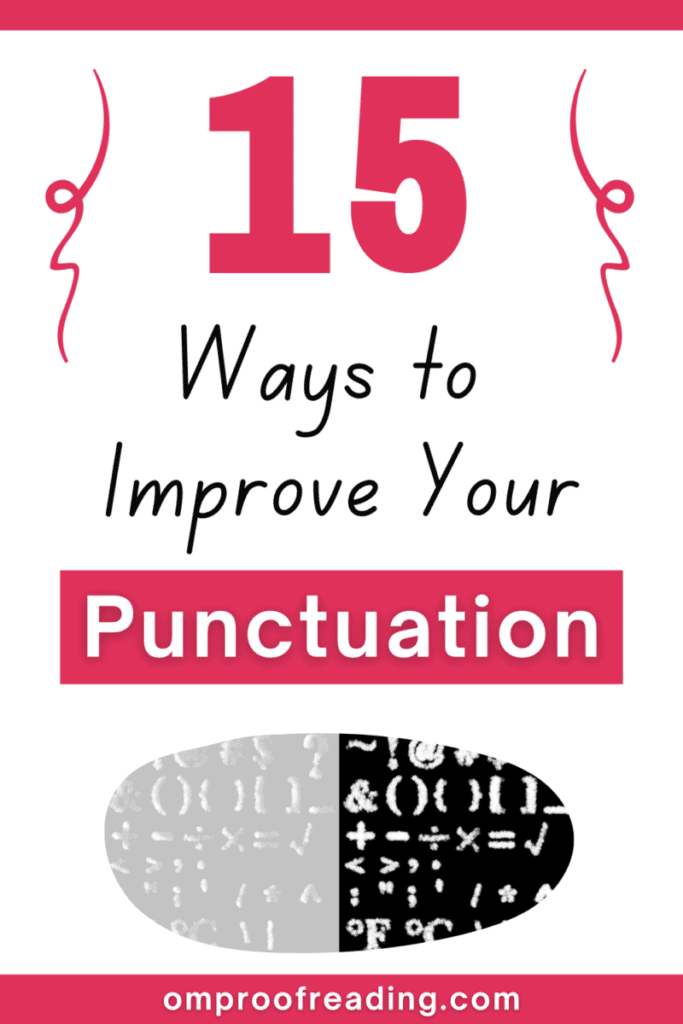
Recent Posts
Punctuation is important because it enables us to communicate our message clearly and effectively. Without punctuation, we wouldn’t understand how units of a sentence relate to one another or how...
Although you're probably somewhat familiar with adverbs, you may be unaware of sentence adverbs. As a trained proofreader who has studied the parts of speech, I can help you understand this unique...
